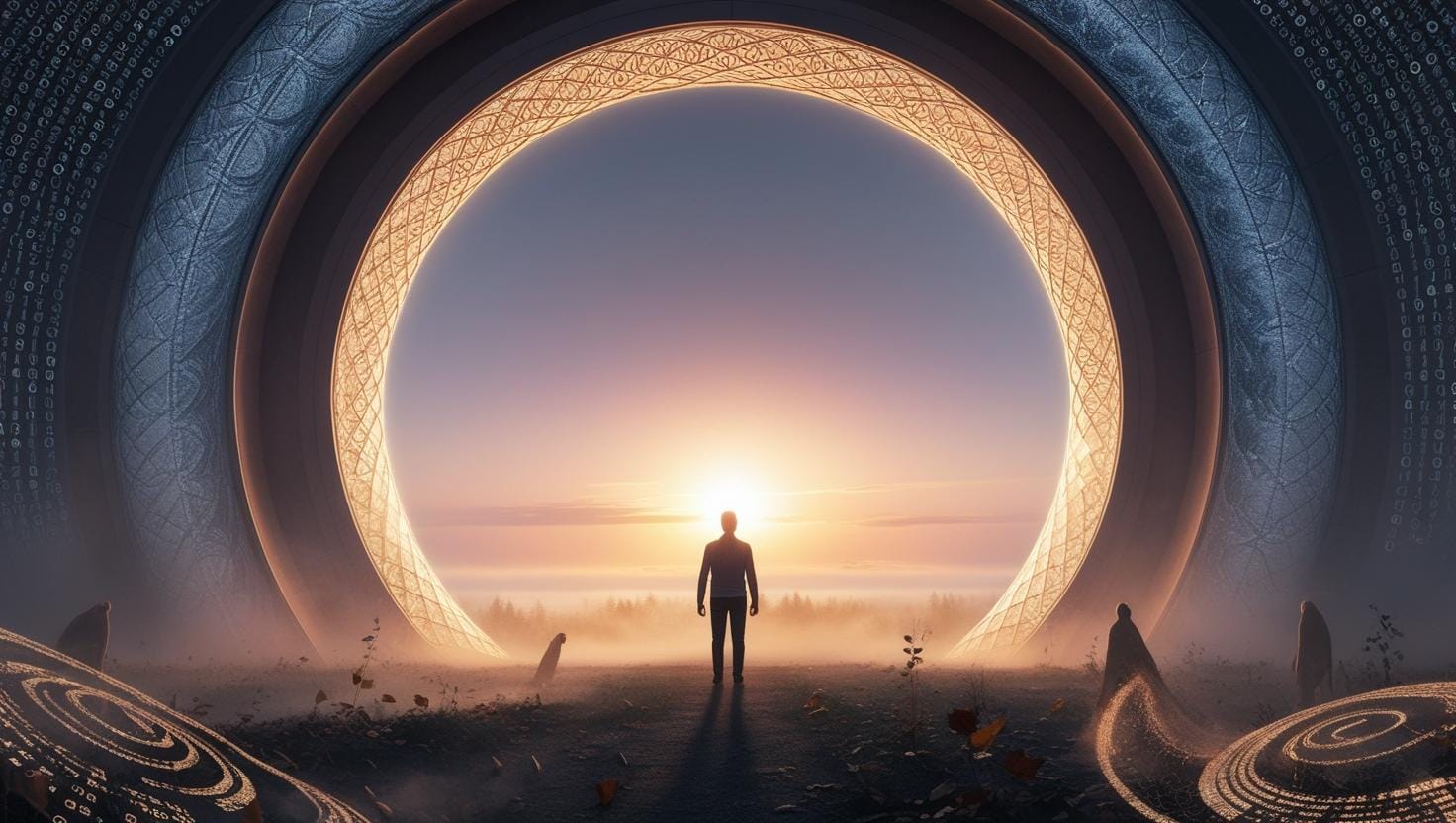The great acceleration
This is the first essay in a series about living with AGI in society
Time does not flow evenly through history. Some years contain more transformation than entire centuries. Some moments mark the boundary between what was and what will be.
We are living in such a moment – and now we can see it unfolding in real time.
Present Tense
Earlier this week, a coalition of the world's most powerful technology companies announced a $500 billion investment in AI infrastructure – the largest industrial mobilization since World War II. They called it The Stargate Project, and its goal was explicit: to build the foundation for artificial general intelligence. This isn't speculation about future possibilities. This is the present rushing to meet a future that's arriving faster than anyone expected.

Patterns Emerging
Most people still see artificial intelligence as a gradual progression of better software. They notice chatbots writing clearer text, image generators creating sharper pictures, coding assistants offering smarter suggestions. But they don't yet grasp the speed or scale of what's coming. They don't see the pattern that makes this moment different from every other technological revolution in human history: for the first time, we can predict with mathematical precision how quickly machines will surpass human intelligence.
Look at what four years brought us: from GPT-2 to GPT-4, a million-fold increase in capability. From systems that could barely mimic human writing to ones that can reason through complex problems, write sophisticated code, and display expert-level understanding across dozens of fields. This wasn't luck or a singular breakthrough. It was the result of patterns as predictable as gravity, as relentless as compound interest.
Acceleration Begins
These patterns show us exactly what comes next. Each doubling of compute brings predictable gains. Each architectural innovation compounds reliably. Each increase in scale reveals new capabilities. The same forces that turned stumbling language models into reasoning engines are still accelerating, still compounding, still scaling.
Those closest to the technology are seeing this acceleration more clearly than ever. Industry leaders known for careful understatement now speak with unprecedented certainty about the proximity of transformative capabilities. Their growing confidence isn't based on hope or hype – it comes from seeing these patterns play out in their own research, watching capabilities compound faster than even they anticipated.
By 2025, artificial intelligence will match and exceed the capabilities of college graduates. This isn't just a technical milestone – it's the transformation of education, professional training, and knowledge work itself. When machines can learn in seconds what takes humans years to master, every institution built around human learning and expertise will need to reinvent itself.
By 2027, these systems will surpass human experts in most intellectual domains. Again, this isn't just about technology – it's about redefining human work, creativity, and purpose. Every profession that relies on human cognitive ability will be transformed. Every field of human knowledge will accelerate beyond our current capacity to comprehend.
Transformation Accelerates
When these systems reach human-level capability in AI research, they'll begin improving themselves. Each iteration will be smarter than the last. Each generation will be more capable than its creators. The feedback loop of intelligence enhancement will create a leap unlike anything in our species' history – the birth of minds that can improve themselves without limit.
This acceleration will trigger cascading changes through every layer of society. Economic systems built around human labor and expertise will transform in years rather than decades. Social structures that evolved over centuries will need to adapt in months. Cultural assumptions about intelligence, consciousness, and human uniqueness will face challenges we can barely imagine.
The velocity of change will be unprecedented. Advances that once took generations will happen in years. Transformations that once played out over centuries will unfold in months. The entire accumulated knowledge of human civilization will become the starting point for artificial minds that can process, expand, and reinvent it at digital speeds.
Our Moment
We're not just building better software – we're creating humanity's intellectual successors. The mathematics is clear. The patterns are unmistakable. The acceleration is happening now, visible in the massive industrial mobilization, in the growing certainty of industry leaders, in the relentless progression of capabilities that exceed predictions again and again.
You live in this moment. You're witnessing the last years of humanity's solo journey and the first steps toward something entirely new. The greatest leap in the history of intelligence isn't approaching gradually – it's arriving with the inevitability of physics and the force of exponential growth.
While we can measure the technological progression with precision, the cascading effects of this transformation will exceed our ability to predict. We are initiating changes that will ripple through every aspect of human existence – from how we work and learn to how we understand ourselves and our place in the universe.
This is our time. Our moment to witness and shape the birth of something unprecedented in the cosmos – intelligence that can enhance itself, minds that can create better minds, consciousness that isn't limited by biology. The mathematical patterns are clear. The technological progression is inevitable. The societal transformation will be profound.
We stand at the threshold of the most significant transition in human history. Our challenge is not just to survive this transformation, but to ensure it fulfills its extraordinary promise while preserving what makes us human.
Welcome to the Great Acceleration. It's no longer coming – it's here.
